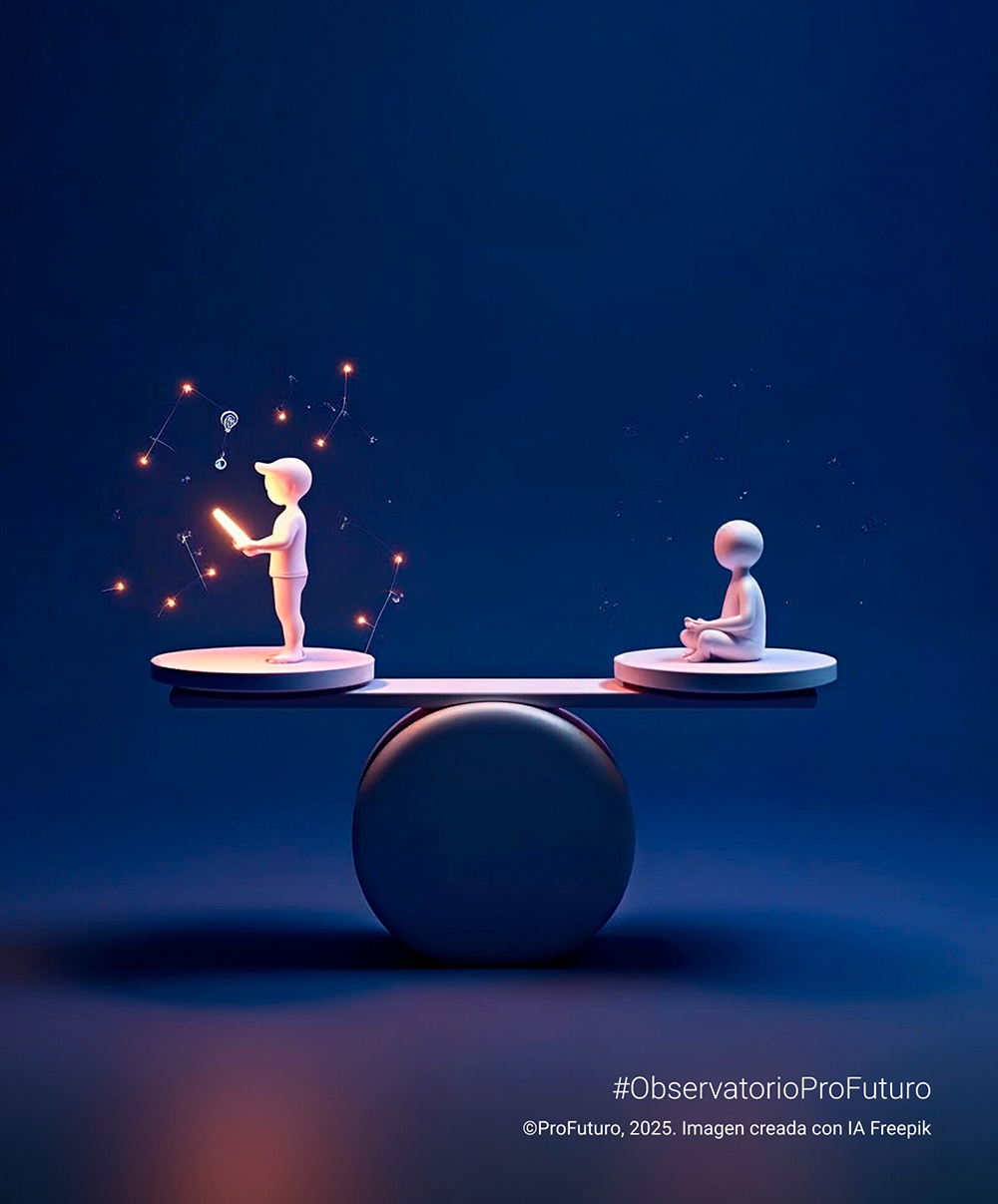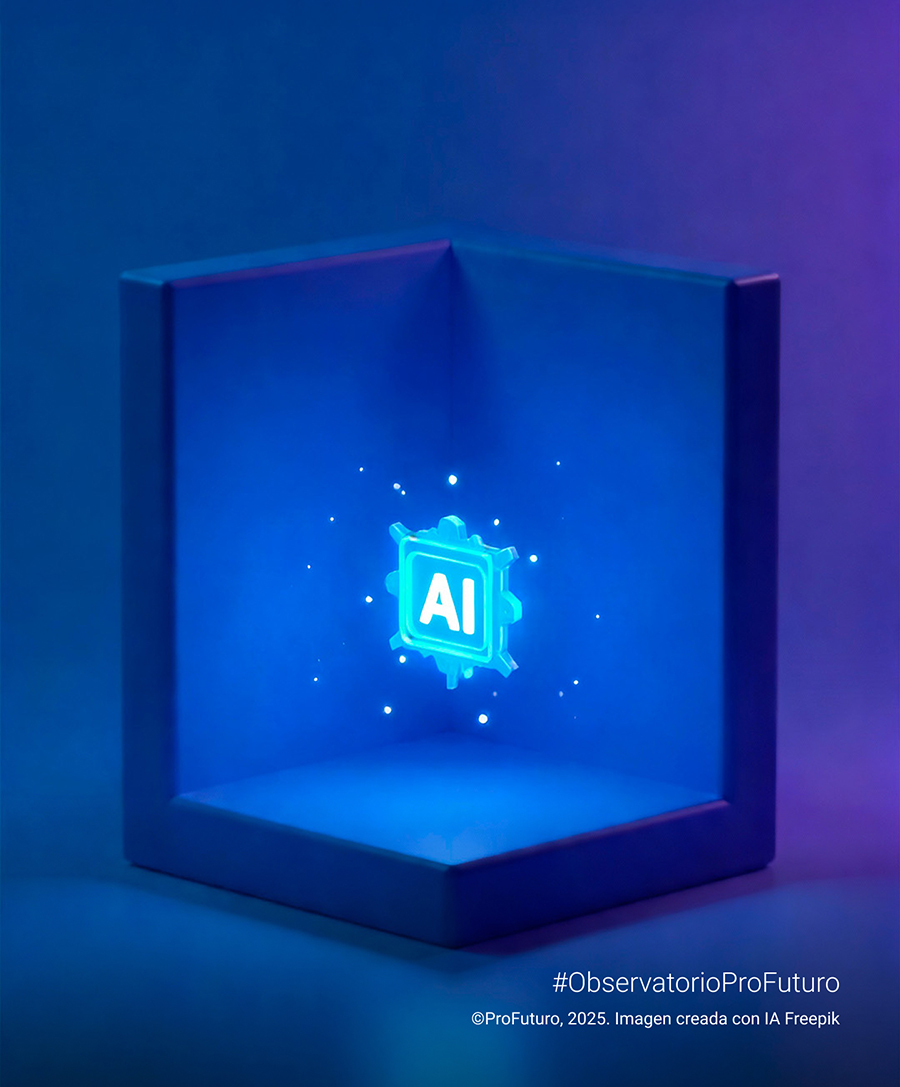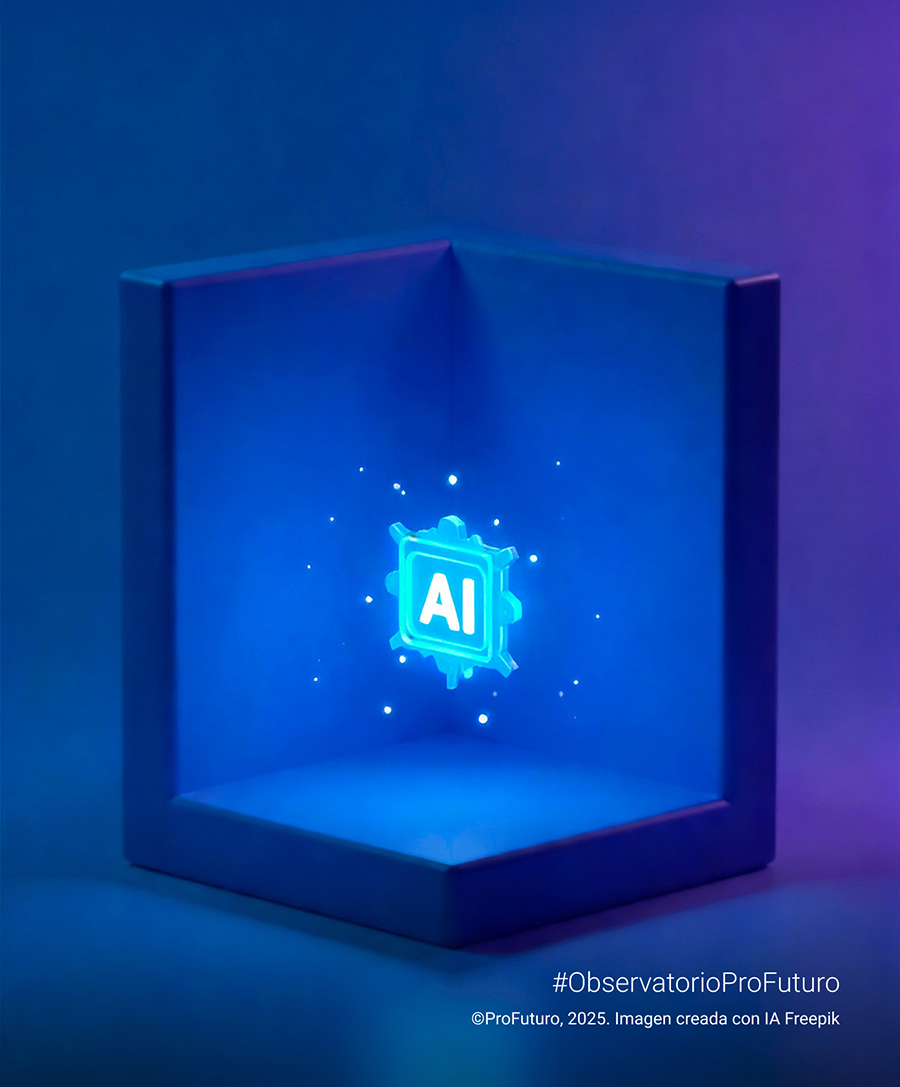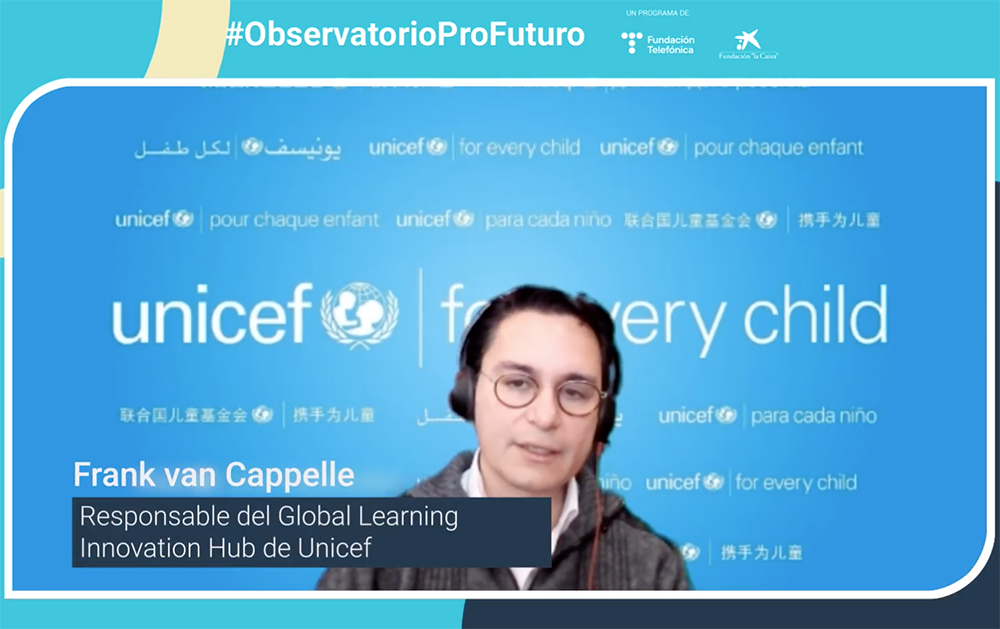We are living in a time of accelerated changes, in which traditional institutions—including schools—are trying to adapt to new social, technological, and cultural demands. Technological transformation advances at great speed, inequality persists in new forms, development models show signs of exhaustion, and democratic institutions, in many contexts, face growing citizen distrust. Amid this panorama, the education system continues to respond with solutions that often resemble the same old ones.
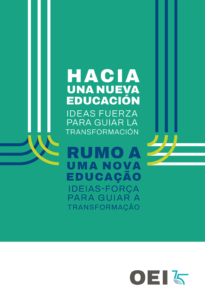
The publication Towards a New Education. Core Ideas to Guide Transformation, edited by the OEI and coordinated by the Italian sociologist Renato Opertti, begins with a clear premise: it is no longer enough to reform educational systems. The concept of “reform,” so recurrent since the 1980s, has largely acted upon what already exists: curricular adjustments, progressive incorporation of technologies, partial institutional modifications. But, as Opertti notes in the introduction of the document, current challenges demand something deeper: a transformation that allows us to “lay new civilizational foundations” instead of merely improving existing ones.
The publication Towards a New Education. Core Ideas to Guide Transformation, edited by the OEI and coordinated by the Italian sociologist Renato Opertti, begins with a clear premise: it is no longer enough to reform educational systems. The concept of “reform,” so recurrent since the 1980s, has largely acted upon what already exists: curricular adjustments, progressive incorporation of technologies, partial institutional modifications. But, as Opertti notes in the introduction of the document, current challenges demand something deeper: a transformation that allows us to “lay new civilizational foundations” instead of merely improving existing ones.
The distinction is not minor. To reform is to improve within a framework. To transform is to question the framework itself. According to this vision, education must no longer continue to operate as a reactive response to environmental problems, but rather as a proactive space, capable of actively contributing to the construction of a new social contract, as also proposed by UNESCO and other multilateral organizations.
This renewed social contract does not simply consist of expanding rights or redistributing resources—although that is indispensable. It involves rethinking why, how, and with whom we educate, guided by a vision of development that is fairer, more inclusive, and sustainable. The OEI expresses it clearly: education must shape “free and thoughtful beings endowed with the wills, capacities, opportunities, and spaces to exercise and enjoy autonomous, futuristic, supportive, profound, and creative thinking.”
Faced with this proposition, Ibero-American education systems, each with their own contexts and rhythms, face a common question: are they organized to accompany this transformation or are they still centered on a logic of adaptation? The publication proposes that it is not possible to advance toward the future with tools from the past, nor to form democratic citizenship with pedagogical devices that privilege repetition over understanding or standardization above critical judgment.
Towards a New Education is an invitation to think collectively—from Ibero-America and with its particularities—about how to move from reform to transformation. To build on what is valuable from the past without staying in it. To imagine other possible futures.
Education as a Common Good
One of the ideas that runs throughout the OEI publication is that education can no longer be sustained solely on the principle of universality if it does not also redefine its collective meaning. The universalization of access—the great achievement of the 20th century—is no longer enough. In a global scenario marked by political fragmentation, weakening consensus, and loss of trust in institutions, education risks becoming a mechanism that reproduces inequalities rather than a tool to overcome them.
Renato Opertti addresses this tension with clarity. In his chapter on universal education, he warns that the notion of universalism is being challenged by a complex combination of phenomena: the rise of identity-driven particularisms, disinformation, erosion of critical thinking, and delegitimization of shared knowledge. Faced with this landscape, the challenge is not only to guarantee access, but also to rebuild the value of the common. It is about, he says, “reaffirming the notion of universal education as an unavoidable foundation upon which the diversity of identities and beliefs is appreciated and strengthened.”
In the same vein, Juan Manuel Moreno and Lucas Gortázar, authors of the book Universal Education. Why the Most Successful Project in History Generates Discontent and New Inequalities, offer a provocative reading that the OEI includes in its publication: the expansion of education has not necessarily been a force for democratic cohesion. It can be, of course. But it can also lead to credentialism, fierce competition, and symbolic exclusion of those who fail to “ascend” the meritocratic ladder.
When education becomes a positional good—i.e., when its value depends on the distance it allows one to take from others—it ceases to be a collective project and becomes an obstacle course. “Universal education becomes blurred when it becomes a positional good rather than a common good,” write Moreno and Gortázar. Under these conditions, mass access guarantees neither inclusion nor justice. Sometimes, not even learning.
Sociologist François Dubet and researcher Marie Duru-Bellat go further. In an analysis cited in the same publication, they affirm that the contemporary school system not only reproduces inequalities but produces an emotional structure divided between winners and losers. Educational success becomes a form of personal legitimation, while failure carries the stigma of “insufficient merit.” The result is a society increasingly fragmented, where the value of education is measured by its ability to distinguish, not to include.
In response to this scenario, the OEI revisits an idea central to the international education agenda in the last decade: education as a common good. But it does not limit itself to reclaiming it as a slogan. It links it to the need to establish a new framework of meaning that allows for the reconstruction of broad social agreements, reinforces the public role of schools, and recognizes that educating is not only transmitting knowledge, but building relationships, generating belonging, and sustaining shared projects.
This approach aligns with Sustainable Development Goal 4 (SDG 4), which promotes inclusive, equitable and quality education for all throughout life. But it goes further, pointing out that without education that reinforces social bonds and democratic empathy, no development will be sustainable over time. And this kind of education cannot be achieved with resources alone. It requires purpose, political coherence, and a deliberate willingness to restore a sense of community in classrooms, systems, and society.
Thus understood, universalism does not disappear. It is re-signified. No longer as an abstract ideal, nor as a mechanical guarantee of access, but as a political and cultural commitment to educate for the common good amidst diversity.
Towards a New Education is an invitation to think collectively—from Ibero-America and with its particularities—about how to move from reform to transformation. To build on what is valuable from the past without staying in it. To imagine other possible futures.
Educating to Sustain Life
When we speak of educational transformation, concepts like innovation, digitization, or employability often appear. And all of these are, without doubt, important. However, there is a less visible yet essential axis that runs through the OEI’s proposal: educating to sustain life. Not as a romantic slogan, but as an ethical, political, and pedagogical orientation in view of the evidence that the current development model is environmentally, socially, and culturally unsustainable.
In her contribution to Towards a New Education, cultural manager and pedagogue Gemma Carbó proposes rereading SDG 4 from a humanistic and multidimensional perspective. What she suggests is rethinking education’s function from the capacity to care for, understand, and transform reality. This implies literacy that goes beyond traditional reading and writing, incorporating critical thinking, creativity, ecological awareness, and dialogue among knowledge forms.
Carbó speaks of “cultural education for sustainability” as an approach that integrates art, science, ethics, and technology, and recognizes museums, libraries, theaters and creative spaces as educational agents as relevant as schools themselves. The proposal echoes human development theories by Amartya Sen and Martha Nussbaum, focusing on the capacities needed to lead a full, dignified, and responsible life. It’s not only about acquiring knowledge, but learning to inhabit the world with meaning.
As stated, this vision implies expanding the concept of literacy. Rather than seeing it as a technical skill, it’s understood as a critical competency that must adapt to contemporary challenges: understanding the codes of the digital era, managing information ethically, acting with empathy in diverse contexts, reading not only texts but also images, environments, and narratives. Literacy, thus conceived, becomes the foundation of active and transformative citizenship.
The OEI document also includes contributions along this line from the field of technology. Claudia Limón, for instance, posits that AI should not be considered a threat nor a magic solution, but a tool whose power will depend on its usage. In education, AI can facilitate more personalized learning, but can also deepen inequalities if not integrated from an ethical and pedagogical perspective. For this reason, she proposes linking AI and Education for Sustainable Development (ESD) as a strategic pair for the future.
Likewise, Axel Rivas concurs that the discussion cannot focus on technological novelty. We must ask what it is used for, what type of learning it promotes, and who benefits. “A different planning, as new and dynamic as AI’s own development model,” he writes, “can bring effective solutions rather than promises that foster despair.” The message is clear: educational transformation needs direction, not just speed.
Towards a New Education
In a time marked by uncertainty, speaking of hope may seem ingenuous. However, as noted in the publication, “hope is not a comforting illusion, but a ‘movement of seeking’ that propels us toward what does not yet exist.” In education, this form of active hope does not mean waiting for things to improve by inertia, but engaging in the task of transforming them from the present.
Towards a New Education closes with an idea that runs throughout the document: transforming education is also transforming the social imagination. It is not just about designing policies or introducing technologies, but about asking what kind of future we want to build and what role education plays in that collective project. The school, in that sense, is much more than a space for transmitting content: it is a place to think together, to experiment with other ways of living, to educate not only in what is, but in what could be.
Writer Javier Cercas summarizes it precisely when he says that “valuable ideas can be provocative and revolutionary.” The OEI embraces this spirit by calling for a broad, plural, and constructive debate about the fate of education in Ibero-America. That is why it proposes a series of “core ideas” that open many possible paths: educating with meaning, forming with a critical perspective, integrating knowledge, valuing diversity, acting with intergenerational responsibility.
At the end, the message is clear: educational transformation is not a luxury, nor a laboratory utopia. It is an urgent necessity to sustain social cohesion, face the challenges of the 21st century, and offer new generations more than mere adaptation: the real possibility of thinking and building a better world.



